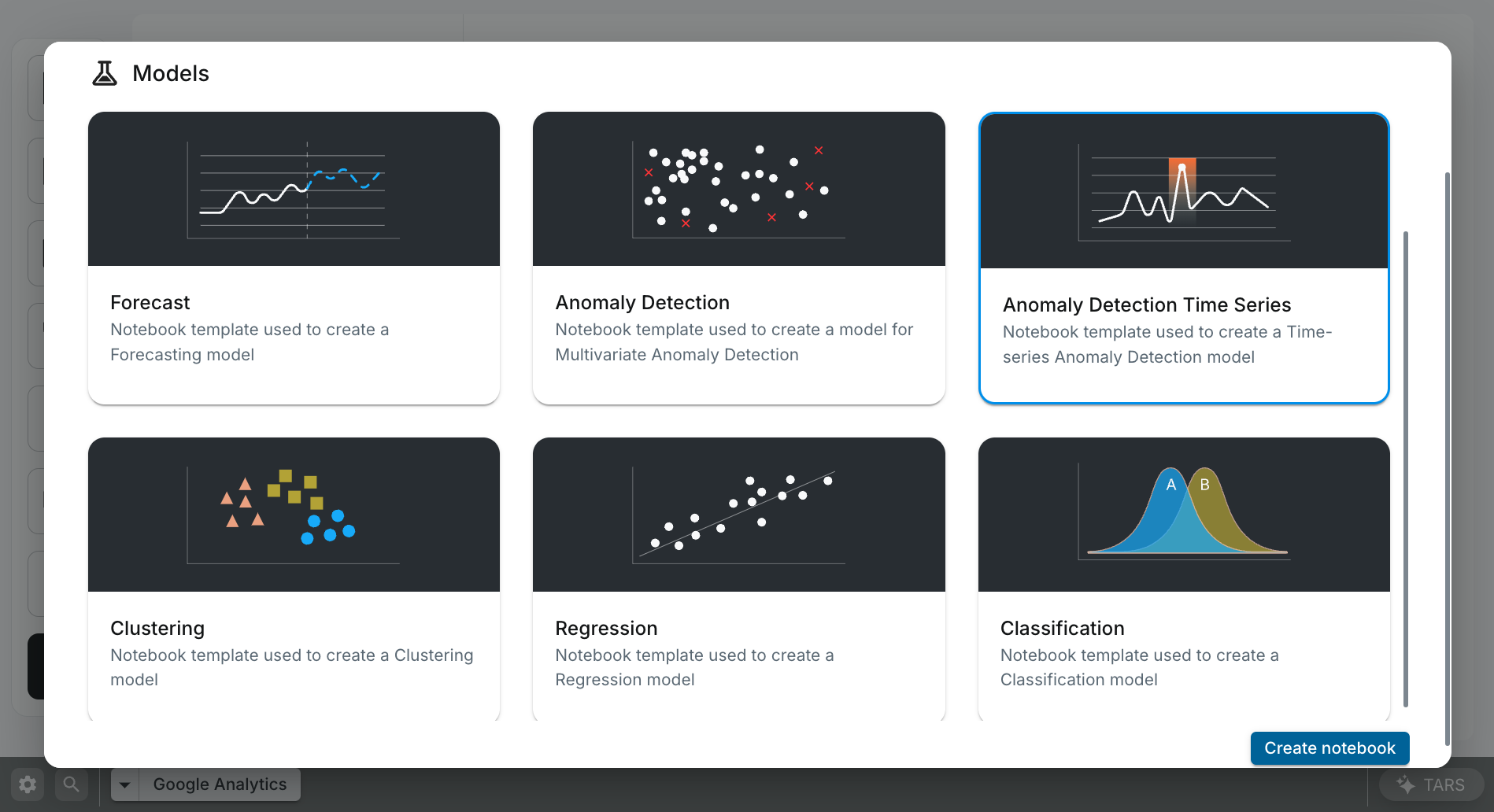Overview: AI Platform
An ML model in a notebook is an asset; a model in production is a competitive advantage. Arkham's AI Platform is engineered to bridge that gap. It is a comprehensive, end-to-end environment designed to manage the full lifecycle of machine learning, streamlining the path from experimentation to operational impact.
Our platform is built on an opinionated philosophy with low-code flexibility. It gives builders programmatic control within our powerful ML-Hub notebook environment while providing UI-driven tools for rapid visualization, monitoring, scheduling, and consumption, all supercharged by TARS an onboard AI co-pilot.

Our AI Platform, featuring an ML Hub notebook where builders can develop models and collaborate with our AI copilot, TARS, for contextual assistance.
Mission Control for MLOps
Our AI Platform provides a unified control plane for the entire machine learning lifecycle, structured around three key pillars:
- Template-Driven Development: Our ML Hub provides a "pro-code" notebook environment where development is accelerated by a gallery of Notebook Templates. We offer six templates for common ML use cases and one for ad-hoc data exploration, providing best-practice scaffolding to allow data scientists to move faster and ensure organizational consistency.
- Simplified Deployment: A versioned Model Registry is the single source of truth for all model artifacts. From the registry, models are operationalized as a scheduled batch Inference Job with a single click, eliminating the need for custom deployment scripts.
- Integrated Consumption & Monitoring: To ensure your AI is reliable in production, model outputs are treated as first-class citizens. Predictions and metrics are published back to our Data Catalog for analysis in Workbooks, while the health and performance of every Inference Job is tracked in our Pipeline Monitoring service. This closes the loop on the MLOps lifecycle, providing full operational visibility.
Core Components
Our AI Platform is comprised of several integrated services that work together to support the ML lifecycle:
- ML Hub: A powerful, template-driven Python-based notebook interface to build, train, and deploy machine learning models.
- Workbooks: An interactive dashboarding tool for creating analytical apps and reports on top of our Data Catalog data and model results.
- Metric Library: A collection of reusable metrics answering business questions.
- TARS: A platform-wide conversational co-pilot that accelerates workflows by generating code, answering questions, and executing tasks.
Core Concepts
Concept
Description
Notebook Template
A pre-built notebook for a specific use case (e.g., Customer Churn) that provides boilerplate code and a best-practice workflow.
Model Class
A pre-built, configurable class within a notebook for a common ML task (e.g., Classification, Regression, Forecasting, Anomaly Detection, Clustering, Anomaly Detection Time Series) that accelerates development.
Model Version
An immutable, timestamped snapshot of a model, including its code, parameters, and artifacts.
Inference Job
A scheduled execution of a model that runs on new data and publishes its predictions as a new dataset.
Builder's Workflow: From Development to Impact
The diagram below outlines the end-to-end process of developing and deploying a model using our AI Platform. It illustrates how the components coordinate to create a seamless workflow from initial development to operational impact.

This diagram outlines our AI Platform's integrated MLOps lifecycle, designed to accelerate the path from development to production. The journey begins in our ML Hub, where builders use trusted data from the Data Catalog to train and version models. Once deployed, model outputs are automatically published back to the Data Catalog for consumption in Workbooks through Metrics and monitored for operational health, closing the loop on the end-to-end process.
Related Capabilities
Our AI Platform is deeply integrated with the other core capabilities of Arkham's ecosystem.
- Data Platform: Provides the high-quality, production-grade datasets that serve as the essential fuel for all model training and batch Inference Jobs.
- Ontology: Delivers semantically rich, business-aware features to models and provides governed metrics for consumption in Workbooks.
- Governance: All models, datasets, and jobs within our AI Platform are organized and secured by the rules of their parent Project.


